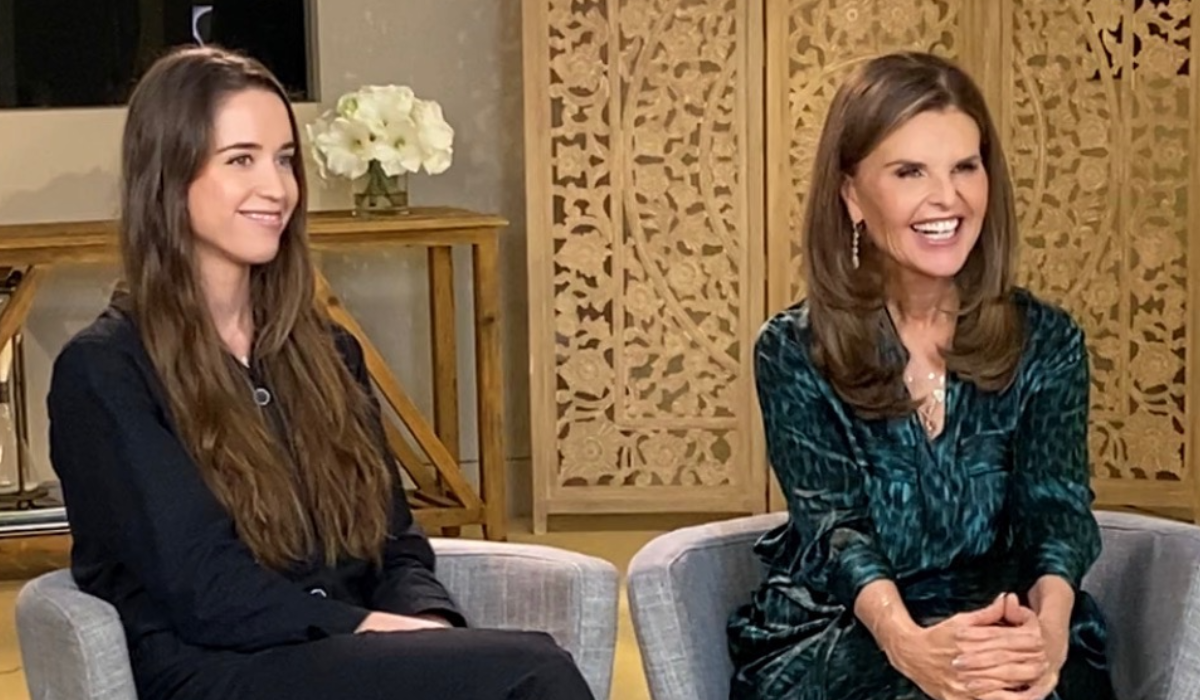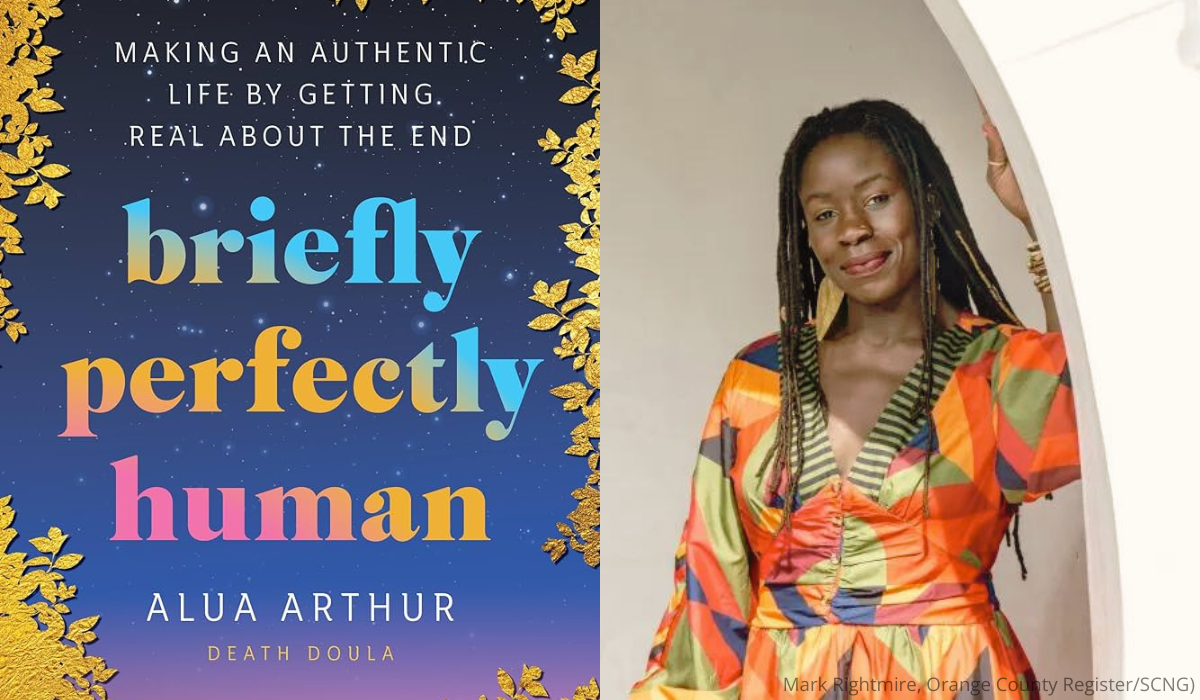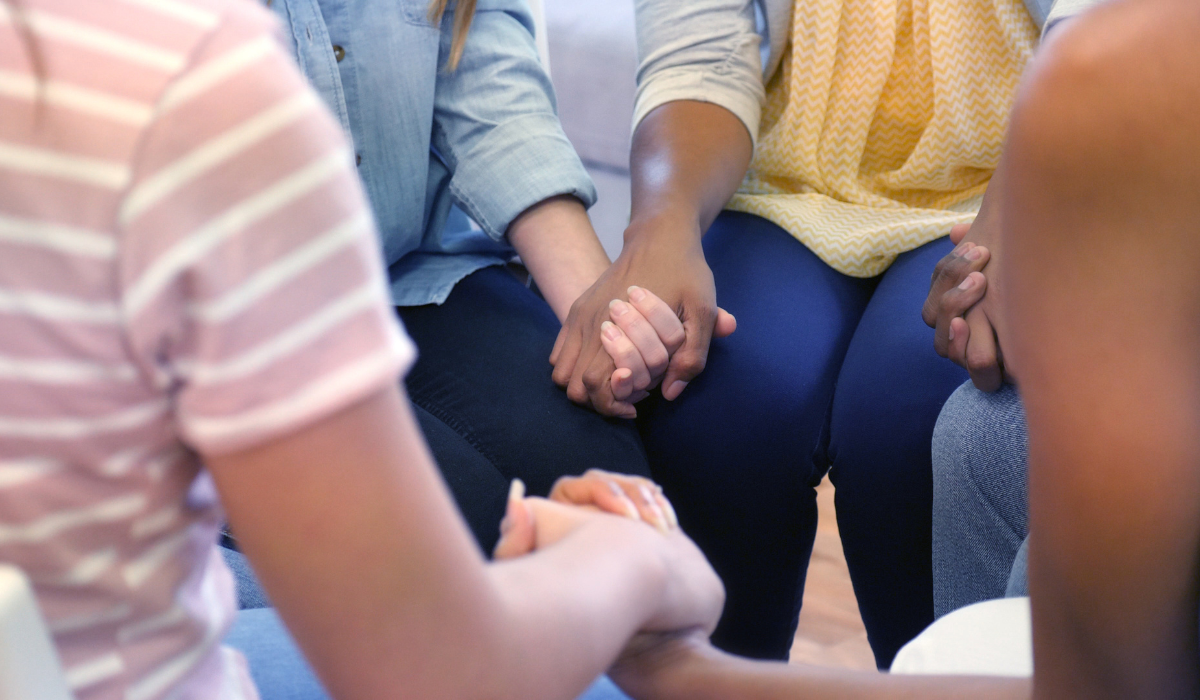Mother-Daughter Duo Maria and Christina Dish About Their Latest Netflix Documentary, Take Your Pills: Xanax—and What They Love Most About Working Together
When Maria Shriver and Christina Schwarzenegger teamed up to make a Netflix documentary on cognition-enhancing drugs like Adderall and Ritalin, the result was the acclaimed Take Your Pills—a film that dispelled both medical and cultural myths surrounding these prescription stimulants.
Now, the mother-daughter duo has teamed up again to produce Take Your Pills: Xanax, which shines a light on the widely prescribed anti-anxiety medication that’s proven to be a cure for some and a curse for so many others.
The Sunday Paper sat down with Maria and Christina to talk about what sparked the idea for their latest project, what they each took away from the in-depth interviews with both patients and experts in the film, as well as what it was like working together. Spoiler alert: The admiration and gratitude they have for each other will make you smile.
A Conversation with Maria and Christina
Christina, you had the idea for Take Your Pills after your four years at college, where you couldn’t believe how many of your peers were using stimulants like Adderall. What was your ultimate goal in producing that first documentary?
Honestly, it really stemmed from my experience taking Adderall, graduating from college, and encountering some health issues related to that overuse. When I decided to come off the medication, I dealt with what felt like an existential question: Who am I without it? Did I actually do the work, or did Adderall? And now as someone who feels like a new person, how do I cope with that?
While I was going through all of that, I had a lot of friends who’d used Adderall and chose to go off it who struggled with the same question.
As I started my journey getting off Adderall, I searched for information on the subject. This was back in 2014 and I couldn’t find the information I was looking for. I was watching a lot of documentaries at the time—I’m a visual learner—and I thought there needed to be a source of information for people who were being prescribed Adderall, or who had used it and had a similar experience as I did. I knew I couldn’t be the only one.
It was out of that necessity that I wanted to create the film. I felt like it was needed, and that there had to be others out there who felt like I did.
Maria: So many teachers have said to me, “Show me your pain and I’ll show you your purpose.” Christina had pain around this subject—and she leaned into that pain and found a purpose in being able to bring documentaries to the public.
I’m very proud of Christina for looking at her own life and saying, “I’m not alone here. There are millions of others like me, and millions of other mothers like you. We need to bring this out into the light and talk about it openly.”
Maria, what excited you the most about this project as a journalist? What did you want viewers to take away from it?
I think part of my mission is to use media to inform, ignite, and inspire. Christina’s desire was to educate and entertain people. I think the first Take Your Pills documentary was educating and entertaining. It was thought provoking. That’s why I got into journalism. So, when Christina said she wanted to do this, it fit 100% with my overall journalistic mission. And I think the success of the film speaks to the widespread use of these drugs.
Christina approached this topic as someone who was taking Adderall as a young person; I approached the topic as a parent. What do parents know? Are we blindly walking through this space?
We were so happy the film did so well and that it gave birth to this sequel—and we hope it’ll give birth to many other films, because we are a pill nation. Yet as Christina always asks: At what cost?
Too many of us have no clue about the side effects of these medications we’re on. What’s exciting about Take Your Pills: Xanax is that we’re in the midst of widespread anxiety, and people want a quick fix for that. This film is so timely. And I think it hits the sweet spot of educating, entertaining, and being thought provoking.
When did you have a sense that Take Your Pills could become a series, where you might look at other prescription medications we’re overusing?
Christina: I think from the beginning, we saw Take Your Pills as something that could cover many different topics. Adderall was the starting point, but the trajectory is that we’ll include anti-anxiety, antidepressants, psychedelics, and many other medications that are being prescribed to help people navigate their mental health.
Maria: People are starting to wonder: What is the effect of taking this pill on my brain, or on my body? Is this a drug that’s been tested over the course of many years? What am I really doing to myself, whether I’m taking a birth control pill or Xanax? What impact might this have on my future, if I want to get pregnant or if I want to stop taking the medication down the road?
This film also conveys the predicament many doctors find themselves in with a public who wants solutions immediately. Many physicians are saying, “Look, I don’t want to prescribe these, but the patients are way more educated and demanding.” Everybody—whether it’s the media, patients themselves, doctors, parents, friends—is involved in this pill-taking culture we have. The more educated and aware we can become, the better.
There’s a quote in the new film that is powerful: “We’re fixing something that’s broken rather than building resilience against it.” What did you both learn about how all of us can build resilience without a prescription medication if it’s not truly necessary?
Christina: I think you have to walk a fine line when it comes to debilitating anxiety and telling someone to build resilience to that.
However, as a culture we don’t know how to sit with discomfort. Generally speaking, we aren’t taught essential coping mechanisms. How can we grow into adults who can sit with uncomfortable feelings and do the “work?" It’s hard for us to try the techniques that may take a few months to get some results, or that have incremental impact over time.
Maria: I think many of the things Christina is talking about when it comes to building resilience is going through the tough stuff—getting fired, going through a breakup—and learning how to sit with that. I think there are more tools and information out there than ever before about how to build resilience. Yet the challenge is remembering that this takes consistency, and it doesn’t necessarily mean you’ll feel good right away. With Xanax, you feel the impact right away, and we like that.
We’re in the midst of an immediate phenomenon. We have to have a conversation about this: It’s going to take time to build resilience and to build the tools to help you develop a sense of calm.
What’s been your favorite part about working together on these films as mom and daughter?
Maria: I love Christina’s creativity and her ability to see the long term. She’s always bringing the team back to alternative ways of living and looking at the world. There are creative ways to learn, and so many different kinds of brains out there and different kinds of doctors.
She looks at the world like an artist, and it’s such a joy working with someone who can take a step back and creatively look at the landscape. She had a laser-focused eye for details, picking up on seemingly small things that turned out to be big things. Christina has a visionary brain and a very detail-oriented brain at work—and it’s a joy watch.
Christina: I always learn so much just being around my mom. Stepping into this role working together has been incredibly inspiring. I feel like I’m always in awe of the work she does. And her determination and persistence are unmatched.
There were times I’d say, “Let’s just let it go,” and she’d say, “No, I’m going to keep going back until it’s perfect.” I really admire that and learned a lot by witnessing the strength she brings to the table and her compassion while doing so. My mom doesn’t necessarily think of herself as creative, but she’s an incredibly creative editor, communicator, and has an insane amount of work drive.
I have great gratitude for being able to witness that every time we work together.
Originally, I wanted to do Take Your Pills for the kids out there struggling to get off Adderall—but my mom’s ability to tap into and bring forth the inner turmoil of being a parent of a kid on Adderall has been an example of her compassion, knowledge, and inspiration for other parents, friends, family, and caregivers.
I feel like I’m the 1 percent in terms of having a parent I can be so open with, and who’s inspiring me to fight for myself and for my own health—to be a reporter for myself, to find the answers and explanations I’m searching for. I am extremely grateful for this.
You can watch Take Your Pills: Xanax on Netflix here.




